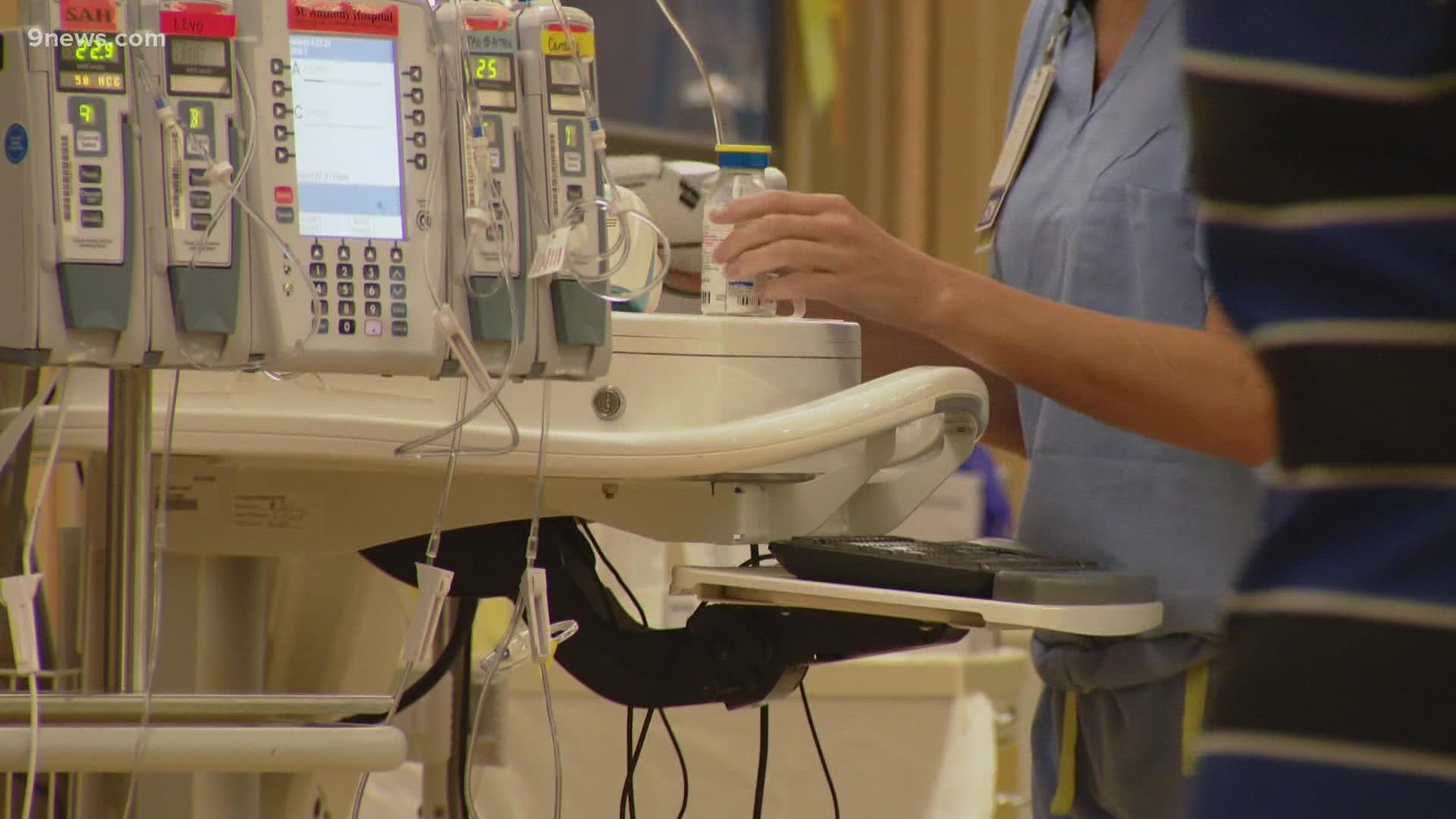DENVER — Gov. Jared Polis has signed an executive order allowing the Colorado Department of Public Health and Environment (CDPHE) to order hospitals and freestanding emergency departments to stop admitting or transfer patients as capacities are threatened amid the COVID-19 pandemic.
It comes as hospitals across the state struggle to treat an influx of patients caused by an increase in COVID-19 cases due to the highly contagious delta variant and people who have not been vaccinated. On Sunday, hospital capacity across the state was less than 10%.
The order applies to hospitals that have reached capacity or are anticipated to reach capacity and is intended to "ensure that Coloradans have adequate health care while protecting hospitals' ability to serve people with COVID-19 and other conditions."
It's up to CDPHE to decide whether a facility is at or anticipated to reach capacity, according to the order, and to authorize the hospital or emergency department to refuse patients or transfer them to a facility designated by CDPHE.
The order prohibits hospitals from considering a patient's insurance status or ability to pay when making transfer decisions.
COVID-19 hospitalizations are at their highest point since late 2020, when the vaccines weren't widely available. Those cases, on top of trauma and other respiratory illnesses, are making it difficult for a hospital in Montrose to find open beds.
"We are actually hitting a huge spike right now and it’s actually worse than last year," said Jeff Mengenhausen, CEO of Montrose Regional Health. "We have actually broken the number of COVID-19 patients in the hospital compared to last year."
Mengenhausen said his hospital is operating at roughly 110% capacity.
"We call everywhere for intensive care unit beds," he said. "We have had to transfer someone to Kansas and we have gotten calls from Kansas trying to transfer to us."
Mengenhausen said sometimes it can take more than twelve hours for his hospital to find a hospital with an open bed.
"Now we are having six to eight hour wait times because we are unable to move patients out," he said.
He began to notice an increase in patient volume in mid-October. Montrose Regional Health has cut down the number of elective surgeries by about 50% to help fill holes in staffing.
Staffing levels at the facility are not an issue right now like before. They have enough health care workers to help patients. Mengenhausen said they just don't have enough beds for those patients.
"We still see the traumas and the heart attacks and the strokes," he said. "What is adding to it is the COVID surge on top of it and that is what is straining."
RELATED: Hospitals prepare to distribute COVID-19 vaccine to kids ages 5-11, once CDC gives final sign-off
According to CDPHE's data dashboard, there were 1,184 COVID-19 patients in Colorado hospitals as of Friday. Of those, 78% were unvaccinated.
On Thursday, Polis implemented a plan to distribute monoclonal antibodies to urgent care and mobile clinics. The hope is that wider availability will help reduce the surge of COVID-19 hospitalizations in the state.
On Sunday, CDPHE announced a new public health order that requires hospitals and other health care facilities to delay cosmetic procedures for up to six months "if the delay would not cause harm to life, limb or function." CDPHE said it's intended to give hospitals greater capacity during the pandemic.
RELATED: As the virus continues to spread, Colorado's response to COVID has changed a lot since last year
SUGGESTED VIDEOS: Latest from 9NEWS

